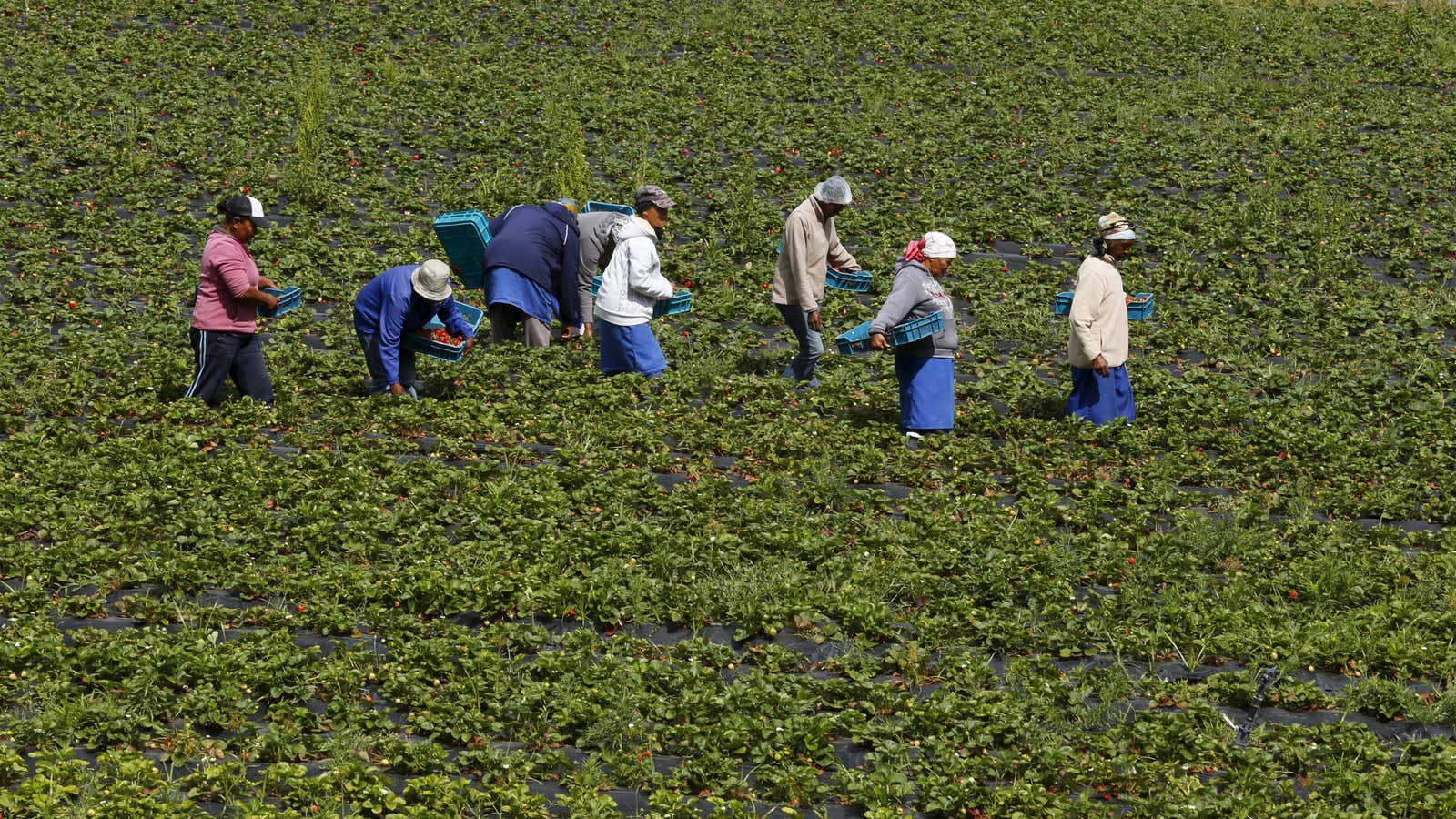In a bid to reduce the massive gap between rich and poor in the country, South Africa’s government has proposed setting a national minimum wage for the first time. But pitching the 20-rand-an-hour figure (roughly $1.40) to the country isn’t proving easy for policymakers, who are trying to balance the competing demands of business and labor.
The proposed wage, announced by deputy president Cyril Ramaphosa on Nov. 20, translates into a monthly income of 3,500 rand ($242). Nearly half of all employed South Africans currently earn below that level, according to the researchers who compiled the report on the wage. The proposed minimum wage was a compromise between labor’s call for a range of 3,700 rand and 4,500 rand ($255 to $310) a month, and the business sector’s proposal of 2,500 rand ($173).
The government’s proposal provoked an outcry from labor unions and opposition parties, who increased their demands to a monthly range of between 5,000 rand ($345) and 5,700 rand ($394) in response, in part to adjust for the inflation in the two years since discussions over a minimum wage began. The Food and Allied Workers Union rejected the amount, saying it was “inappropriate and far from addressing the treble challenges of unemployment‚ inequality and poverty.”
South Africa’s unemployment rate has barely budged in recent years, with roughly one in four South Africans unemployed, or 26.6% of the labor force. Over 2.5 million South Africans work in the country’s informal sector, in businesses or homes with fewer than five employees, and earning a salary too low to tax, according to Statistics South Africa (pdf). This has contributed to the country being consistently ranked as one of the most unequal societies in the world, with a recent Bloomberg study finding that South African CEOs earn more than 500 times than the average worker.
The government will now seek to reach an agreement with business, labor, and civil society on a standardized minimum wage amount. If that happens, the wage would be introduced over two years for workers. All workers, that is, except for those in the domestic, agriculture and small business sectors. These sectors were exempt from the minimum wage proposal for fear that it would lead to job losses. They are also the sectors worst affected by low wages, with 80% of maids, gardeners and farm workers earning less than 3,500 rand.
South Africans are already required to pay a minimum wage to maids, known as “domestic workers,” who make up 7.8% of the black workforce, according to Statistics South Africa. Earlier this month, that salary increased by 1 rand to 12.42 rand an hour (nearly $0.09), or 2,400 rand a month ($168) after a separate law sought to improve the lives of around one million mainly women in this sector, and the families they support.
